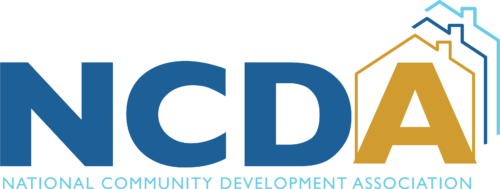In 1968, Congress passed legislation authorizing the Model Cities Program, a program which provided a myriad of services (housing, health, transportation, education, employment, employment training, recreation, to name a few) to urban centers across the country and which grew out of President Johnson’s “War on Poverty.” That same year the Model Cities Directors’ Association was formed to represent those cities receiving funding. The Model Cities Program was replaced with the Community Development Block Grant (CDBG) Program in 1974. With the change in programs came a change in name for the association to the National Model Cities and Community Directors’ Association. In 1979, the name of the organization was changed a final time to the National Community Development Association (NCDA). Today, the NCDA membership is more than 500 and includes both cities and counties.
NCDA is a national non-profit organization which represents cities and counties nationwide which administer U.S. Department of Housing and Urban Development (HUD) funding. All of NCDA’s members administer CDBG, but many also directly administer the HOME Investment Partnerships (HOME) Program, created in 1992. Besides CDBG and HOME funds, many of NCDA’s members also administer Section 108 loans, Continuum of Care funding, Emergency Solutions Grants program, Housing Opportunities for Persons with AIDS (HOPWA), and Lead Hazard Reduction funding.
NCDA is an association of people committed to assist local governments to achieve high quality, locally-responsive programs for making communities better places in which to live, particularly for low- and moderate-income people. NCDA’s staff is committed to provide quality information, advocacy, and training to its membership. The association provides a monthly newsletter, e-mail alerts, training on both CDBG and HOME, legislative expertise on Capitol Hill, and experience with HUD.
